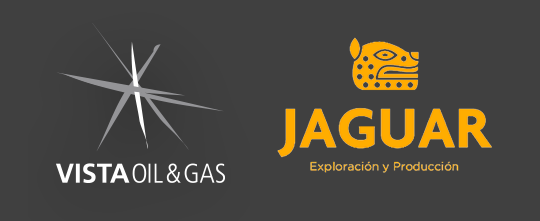M&A | Mexico | NGI All News Access | NGI Mexico GPI | NGI The Weekly Gas Market Report
Jaguar, Vista JV Could Unlock Increased Mexico Natural Gas Development
A relatively modest joint venture (JV) by two Mexican companies, both with huge financial and technical resources, could lead to a revitalized natural gas industry in a nation that now is dependent on massive imports from the United States.

Jaguar Exploración y Producción de Hidrocarburos SAPI de CV is partnering with Vista Oil & Gas SAB de CV. Jaguar is a unit of Grupo Topaz, the creation of Dionisio Garza Sada, a former chief of Grupo Industrial Alfa SAB de CV, the family firm of the largest and most powerful industrial dynasty in Mexico.
Mexico’s energy regulator, Comisión Nacional de Hidrocarburos, the CNH, has to approve what would be the first such alliance between two Mexican companies under the terms of the 2013-14 energy reform.
Vista last year became Mexico’s first independent oil and gas company since energy reforms were instituted four years ago. CEO Miguel Galuccio, formerly chief of Argentina’s state-owned Yacimientos PetrolÃferos Fiscales SA, aka YPF, is known for helping transform the Vaca Muerta shale formation to profitability.
When he took over Vista, boosted by a $650 million initial public offering on the Mexican Stock Exchange and backed by the New York-based private equity firm Riverstone Holdings, Galuccio promised to be a “Latin American champion” in the energy sector.
The alliance between Vista and Jaguar has begun modestly. The deal provides Vista with a 50% share in three natural gas blocks in the southern states of Veracruz and Tabasco. For that, it agreed to pay $27.5 million plus a $10 million carry.
A JV that features a drilling carry gives the seller interests payments for most of the costs associated with the minority interest in producing wells. Carries reduce capital intensity and make it less expensive to realize production growth, as the incremental cost of adding wells is reduced for the JV partner receiving the carry funds.
Under the JV, Vista would operate the two producing Tabasco blocks. The one in Veracruz, which lies within the Tampico-Misantla Basin, is at the exploration stage.
All three blocks were awarded last July in the Rounds 2.2 and 2.3 auctions, when Jaguar burst on the scene with a vengeance. With Calgary-based Sun God Resources, Jaguar won six of the seven blocks on offer in Round 2.2 in the Burgos Basin, the leading producer of non-associated gas in Mexico.
Targeting Natural Gas
While analysts had been predicting bidding that would reflect a lack of interest in natural gas blocks, the reverse appeared to be true in 2.2. Jaguar paid $54 million in cash on one day as tie-breakers.
Analyst Arturo Carranza of Mexico’s National Institute of Public Administration, recalled meeting with Garza Sada when he was chief of Alfa.
“Garza Sada spoke then as a committed proponent of the production of natural gas, and the need to do much more in order to meet the needs of Mexican industry,” Carranza said. “Alfa, of course, has a major petrochemicals division, Alpek, and his interest in gas was close to an obsession.”
It was hardly surprising, Carranza added, that when Garza Sada alone of all the Mexican tycoons who entered the bidding in the first upstream auctions in almost eight decades in Mexico chose opportunities for natural gas exploration and production.
Latin America’s wealthiest business leader, Carlos Slim, and Alberto Bailleres, head of the world’s leading silver producer Industrias Peñoles SAB de CV, were among those who entered the bidding for oil opportunities.
Promise of More to Come
That is why, said Carranza, the JV between Jaguar and Vista is likely to be only the beginning of something much bigger.
“Garza Sada has the business acumen and intimate knowledge of the potential for the development of markets in Mexico that is required,” he said. “Not only that, he knows the political scene like nobody else.”
Meanwhile, Galuccio, with his former YPF leadership and background of success in Vaca Muerta, appears to have the technical know-how to succeed in Mexico, Carranza says. Galuccio is accompanied in Vista with Juan Garoby, who was YPF’s unconventionals director when initial exploration of Vaca Muerta began.
In what will be the last auctions of the current Mexican administration, bids for onshore Rounds 3.2 and 3.3 are to be presented on Sept. 27, including blocks of both conventional and unconventional resources.
Round 3.3 has nine blocks located in the Burgos within the state of Tamaulipas. So far, state-owned Petroleos Mexicanos (Pemex) is the only company to have applied to enter the 3.3 data room.
Round 3.2 has 37 blocks, including several in the Tamaulipas sector of Burgos but also others further south in Tampico-Misantla and in what are known as the southeastern basins.
Jaguar is one of four companies that have applied for prequalification for 3.2.
Concerns over security considerations for businesses in Tamaulipas were heightened in the past few days when leading Mexican company Grupo Lala SAB de CV temporarily closed a distribution center in the state because conditions were “not adequate for operational purposes.”
Lala said it is working with the authorities “with the aim of renewing its activities as soon as possible.” Lala has about half of Mexico’s market in dairy products, and has made inroads in recent years into markets in the United States and Central America.
© 2024 Natural Gas Intelligence. All rights reserved.
ISSN © 1532-1231 | ISSN © 2577-9877 | ISSN © 2577-9966 | ISSN © 1532-1266 |
